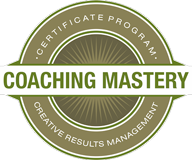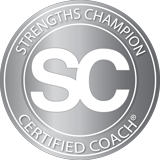Perhaps you’ve considered coaching with a certified life coach but aren’t sure if you are “coachable.” Maybe you’ve sought advice from a trusted friend but haven’t seen the results you desire. Maybe you’ve set goals for yourself but for some reason have struggled to attain them. How do you even know that a coach can help you?
These outcomes don’t mean that your friend’s suggestions were “bad” or that you aren’t capable of accomplishing things on your own, but they do present the opportunity to consider coaching more seriously.
If you’ve wondered about coaching but have been unsure how it would go for you, give yourself a quick assessment by reviewing the five signs outlined below. This examination requires a certain amount of self-awareness and honesty with yourself. Taking it a step further requires vulnerability, but I’d also recommend sharing this with a trusted friend, spouse, or partner to get an honest second opinion. But first, check out the five signs for yourself.
5 signs to determine if you are coachable
1. You are open to feedback.
Are you willing to receive and consider input from others without getting defensive? Do you value different perspectives? Do you implement feedback to improve performance and personal development?
Think of a person who’s recently learned to play an instrument. Assume that person grows to really enjoy it and wants to improve. One way to achieve that goal is to hire a professional coach. In order to receive the benefits of what the coach brings, that person would need to be open to the coach’s feedback and display a willingness to consider outside input without getting defensive.
If you’re not open to receiving feedback, you risk holding yourself back from achieving goals you really desire to accomplish.
2. You possess a willingness to learn and grow.
A willingness to learn and grow means that you have an open mindset and actively seek opportunities to expand your knowledge, skills, and personal development. You embrace new experiences, are receptive to feedback, and strive for self-improvement.
In a work context, this can look like actively seeking out opportunities to attend workshops, webinars, and conferences to stay updated on the latest trends and advancements in your field. You also take on challenging projects outside of your comfort zone to acquire new skills and knowledge. You are willing to receive and act on feedback from colleagues or supervisors.
3. You are self-aware.
Having self-awareness means you have a conscious knowledge and perception of yourself as an individual, including awareness of your thoughts, feelings, actions, and characteristics. It involves recognizing and understanding your own emotions, beliefs, strengths, weaknesses, and motivations. Self-awareness allows you to reflect on your own experiences and behaviors and make informed decisions based on that understanding. It’s an important aspect of personal growth, development, and building meaningful relationships with others.
4. You are able to follow through.
Someone with strong follow-through demonstrates a willingness to complete a task or fulfill commitments consistently. It’s the process of converting an intention into an action, then moving it all the way through to completion. These individuals take responsibility for their actions and deliver on their promises or obligations to the best of their ability.
Follow-through also involves effective planning and organization. It may require breaking down larger tasks into manageable steps, setting realistic timelines, and actively monitoring progress to ensure timely completion. Individuals who possess follow-through are seen as dependable and trustworthy. This is a necessary quality for those wishing to experience gains in coaching.
5. You are open to accountability.
Accountability is crucial to successful coaching. With this at play, you are responsible for taking the agreed-upon action, and you are committed to regular check-ins with your coach. Being accountable to a coach helps you stay focused, track your progress, and stay motivated along your journey of personal growth.
An example that most people can relate to is with health and wellness. If you’ve ever ventured to improve eating habits, exercise more regularly, or just feel better, a good coach will schedule regularly check-ins to see what’s working well, discuss any challenges, and explore strategies to overcome those challenges.
A good coach is like having a personal cheerleader in your corner. For those who haven’t experienced loving accountability before, the concept can sound and feel threatening. In reality, it’s actually about providing support, guidance, and encouragement while holding you responsible for the goals and actions that you’ve decided upon.
Your Result—Are You Coachable?
Skim back through the five signs. How many of them describe you? If you’ve considered coaching and three or more of these signs fit the bill, you are likely coachable and may be a great candidate for coaching! If you’re in a period of transition or looking for help on your next step in life, please contact me or book your free discovery call now.
If these signs don’t describe you, don’t beat yourself up over it. Just because they don’t describe you now doesn’t mean they won’t ever describe you.
Being coachable requires a growth mindset and a willingness to embrace feedback, learn, and take action to achieve personal and professional goals.



